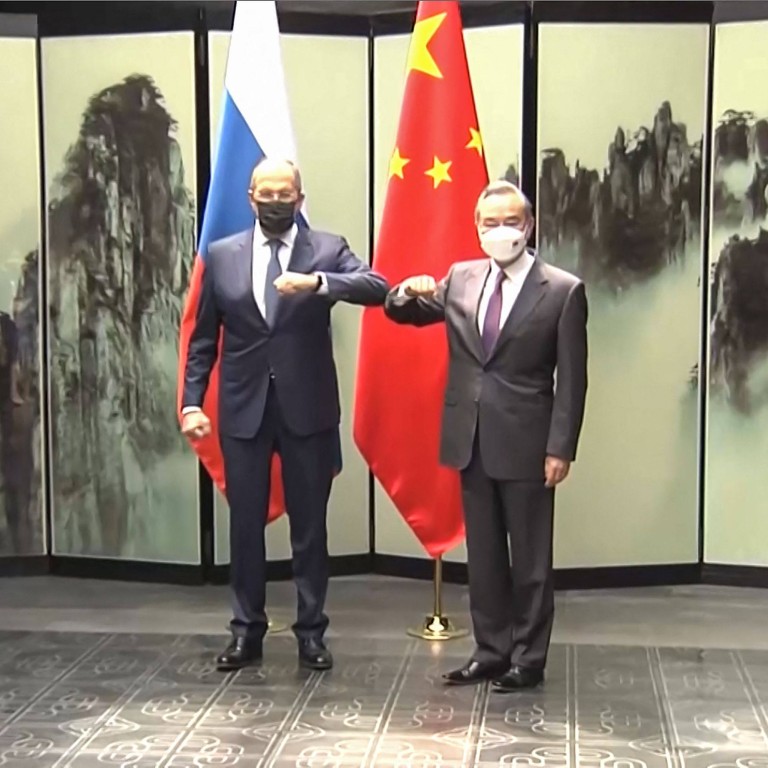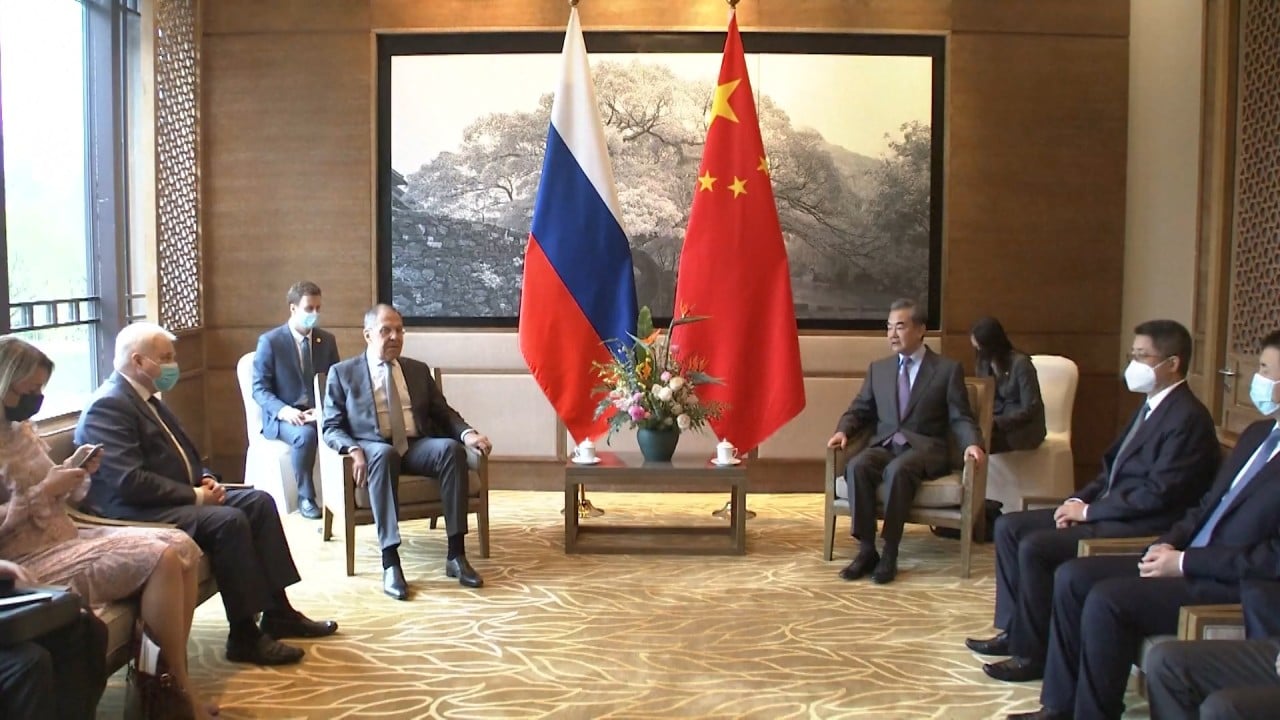
Ukraine war: Data shows tighter convergence of Chinese, Russian messaging, US analysts say
- Studies show alignment of Chinese and Russian official and media narratives of the conflict, as well as differences
- New data comes to light amid a dispute between US and Chinese officials over who bears responsibility for Russia’s invasion
Social media posts by Chinese official sources echoing the Kremlin’s line that Nato’s expansion is the cause of tensions between Russia and Ukraine have surged in recent months, according to data released by US analysts on Wednesday.
The new data comes to light amid a dispute between US and Chinese officials over who bears responsibility for Russia’s invasion of the Eastern European country in February, including frequent allegations by Washington that Beijing has taken Moscow’s side.
German Marshall Fund (GMF) fellow Bret Schafer and Georgia State University professor Maria Repnikova outlined in a briefing organised by the US State Department the data that shows a convergence of Chinese and Russian official and media narratives of the conflict, as well as differences.
“The most mentioned country in the context of war from Chinese officials in 2022 is the United States, not Ukraine or Russia,” said Schafer, who runs an online open-source dashboard developed for GMF called Hamilton 2.0. The platform tracks the outputs of Russian, Chinese and Iranian state media outlets, diplomats and government officials.
For example, Schafer’s research turned up 366 posts through official Chinese accounts on the subject of Nato expansion in the first four months of 2022 so far, compared with 36 for the whole of 2021. The research counted mentions of Ukraine with the word “Nazi” on these accounts 108 times in 2022 so far, compared with only twice last year.
GMF is a public policy think tank that advocates for closer cooperation between the US and Europe on advancing democracy and human rights worldwide.
“This is an entirely new narrative that … China has really adopted from Russia since the start of the war,” Schafer said, adding that the mirroring of messages goes both ways.
“We have seen almost three times as many retweets of Chinese diplomats from Russian sources that we saw in the same period in 2021,” he said. “This is largely driven by amplification of Russian state media outlet RT, but we’ve also seen this occur at the diplomatic level.”
However, Repnikova noted that Chinese messaging is not in total alignment with the Kremlin.
“For example, there hasn’t been official endorsement of Russia’s invasion in Chinese state media, or Chinese official narratives,” she said, adding that coverage of the Ukraine conflict is not uniform across Chinese state media outlets.
“Domestic media primarily neglects the Ukraine position,” Repnikova said. But, she added, state media international outlets like CGTN – which are tasked with “becoming an instrument of soft power” and are trying to compete with the likes of Al Jazeera, CNN and the BBC – are forced to take a more balanced approach, reporting on the Ukrainian perspective and using direct footage from Ukraine.
Chinese drone maker DJI suspends operations in Russia, Ukraine
Repnikova also noted there are tensions in how Chinese officials talk about the conflict.
“Voices from the foreign ministry, like [its spokesman] Zhao Lijian, tend to amplify some pro-Russia narratives and disinformation,” she said. “But then other voices like the ambassador to the United Nations, for instance, and other officials will take much more neutral positions. So we see some frictions even across the officials speaking for China internationally.”
Asked about the findings, China’s Washington embassy spokesman Liu Pengyu said that Beijing makes its judgments independently about international affairs like the conflict in Ukraine.
“We speak for justice and work for peace with a long-term vision,” he said. “If one has to pick sides, then China stands on the side of peace, dialogue, negotiation and de-escalation, instead of war, unilateral sanctions and actions aimed at fanning the flame.”
Officials in US President Joe Biden’s administration have called out Beijing for amplifying Russian disinformation about Putin’s war against Ukraine.
However, the Biden administration has been more focused on determining whether Beijing is undermining sanctions that Washington and its allies have enacted against Russia or otherwise supporting Putin’s war effort – threatening the same sanctions against China if it is determined that such activity has occurred.
Belarus has supported Russian war efforts in Ukraine.
Speaking at a Senate Foreign Relations Committee hearing on Tuesday, US Secretary of State Antony Blinken criticised China for being supportive of Russia, but also acknowledged that his department has not seen evidence of China undermining sanctions.
“I think you’re seeing that China is having to deal with the significant reputational risk that is already occurring by being seen as – in the most charitable interpretation, on the fence, and more practically, supportive – of Russia,” Blinken said. “But for now, we’re not seeing significant support by China for Russia’s military actions.”



